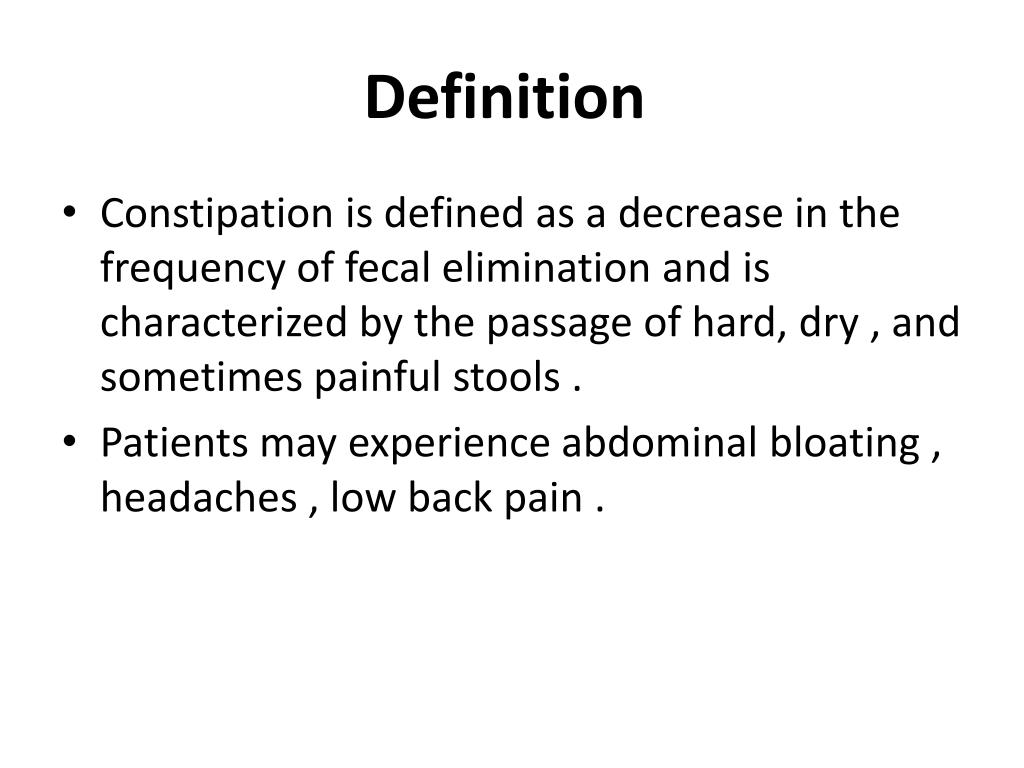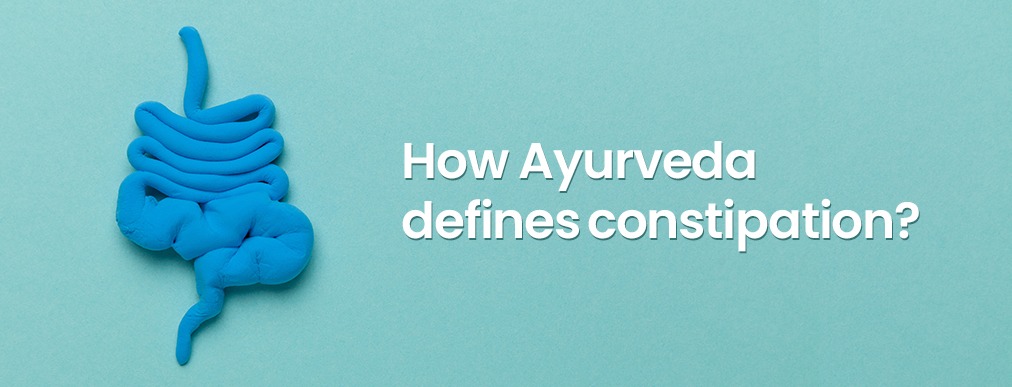108 Glen Osmond Road, Parkside

Constipation means that a person has three or fewer bowel movements in a week. The stool can be hard and dry. Sometimes it is painful to pass. At one time or another, almost everyone gets constipated. In most cases, it lasts a short time and is not serious. You don't have to have a bowel movement every day. If your bowel habits change, however, check with your doctor.

Symptoms of Constipation:
Common causes of constipation:

Complications of chronic constipation :
Some of the complications of chronic constipation include:
Ayurvedic View :

Constipation is called Malabaddhata, vibandha in Ayurveda. It is due to a vata imbalance and blockage of channels. Apana vata is responsible for the free flow/expulsion of stool. When the function of Apana vata is significantly affected, it results in constipation.
Causes of vibandha/ constipation :
Treatment of Constipation/ Vibandha in Ayurveda:
Ayurvedic treatment for constipation aims at lifestyle modifications such as scheduling regular meal times, responding to natural urges promptly, high fluid and high fiber intake, exercising to stimulate and strengthen the muscles of the intestinal tract, and administration of carminatives and mild laxatives.
Long-term sufferers might be advised to undergo specific Panchakarma Ayurvedic Treatment procedures like Sneha Vasti ( medicated oil enema) and/or Kashaya Vasti (medicated decoction enemas) after a course of snehana and swedana to correct the deranged apana vayu.
Triphala:- Triphala is one of the most commonly used Ayurvedic herbs for constipation. It is a combination of three herbs, namely Amalaki, Haritaki, and Bibhitaki. It helps restore the balance of the three doshas, namely vata, pitta, and kapha, present in the body. It helps in improving digestion, eliminating toxins from the body, and improving the absorption of nutrients from the food. It acts as a mild laxative, which helps in relieving constipation.
Castor Oil:- Castor oil is a type of vegetable oil made from the beans of the castor plant. It is a mild laxative that helps to soften the stool and stimulate the intestines to contract, which helps to move the stool along.
Psyllium Husk:- Psyllium husk is a type of fiber that is derived from the seeds of the Plantago ovata plant. It works to add bulk to the stool and helps to soften it, making it easier to pass.
Ginger:- Ginger is one of the most commonly used Ayurvedic herbs for constipation. It helps in improving digestion by stimulating the gastrointestinal tract and increasing the secretion of digestive enzymes. It also helps in improving the absorption of nutrients from the food. Additionally, it helps in reducing inflammation in the intestines, which helps in relieving constipation.
Fennel:- Fennel is an Ayurvedic herb used to treat constipation. It helps in improving digestion by stimulating the gastrointestinal tract and increasing the secretion of digestive enzymes. It also helps in improving the absorption of nutrients from the food. Additionally, it helps in reducing inflammation in the intestines, which helps in relieving constipation.
Flaxseed:- Flaxseed is a type of seed that is high in fiber and omega-3 fatty acids. It helps to add bulk to the stool and soften it, which makes it easier to pass.
Senna:- Senna is an herb that is often used as a laxative to help relieve constipation. It works by stimulating the intestines to contract, which helps to move the stool along.
Guggul:- Guggul is an Ayurvedic herb that is often used to help reduce constipation. It works by stimulating the digestive system and improving the absorption of nutrients in the intestines. Additionally, it helps to reduce inflammation in the intestines, which can help to reduce the symptoms of constipation. Guggul also helps to increase the production of gastric juices, which helps to break down food and aid in digestion. Additionally, it helps to strengthen the intestinal muscles, which helps to move the stool along the digestive tract. Additionally, it helps to reduce the absorption of fats, which can help to reduce the symptoms of constipation.
Cumin:- Cumin is an Ayurvedic herb used to treat constipation. It helps in improving digestion by stimulating the gastrointestinal tract. It also helps in improving the absorption of nutrients from the food. Additionally, it helps in eliminating toxins from the body, which helps in relieving constipation.
Amla:- Amla, also known as Indian Gooseberry, is a powerful Ayurvedic herb used to treat constipation. It helps in relieving constipation by increasing the secretion of digestive enzymes and stimulating the digestive system. It also helps in improving the absorption of nutrients from the food and eliminating toxins from the body.
Cascara:- Cascara is a herbal remedy that is often used to help relieve constipation. It works by stimulating the muscles of the digestive system, which helps to promote bowel movements.
Ayurvedic formulations used for constipation are:
/popular-ayurvedic-herbs-88822-primary-3ba481e5bdb049a2997a4889865ac54d.jpg)
Contact experienced Ayurvedic doctors at Life Line Ayurvedic Herbal Clinic to manage your bowel problems through natural remedies without any side effects. CONTACT
Disclaimer : Sandeep Kumar and Anupam Vasudeva are not GP, they have Ayurveda medical degree from India where it is considered equal to any other medical degree. This qualification is recognized in Australia by vetassess governing body as Complementary Health Therapists. Life Line Ayurvedic Herbal Clinic does not claim to cure a disease or terminal illness and does not create any unreasonable expectation of beneficial treatment. Ayurvedic medicines and treatments are generally considered to be safe but rarely may be associated with possible adverse reactions in individual cases. We recommend seeking urgent medical attention in the case of an adverse reaction. This website provides you with information. You must contact your Ayurvedic or another health professional before you apply them. Read More